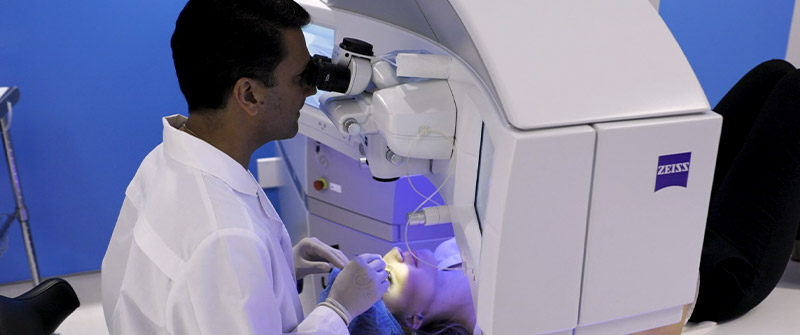
It’s normal to feel nervous about laser eye surgery. Goel Vision answers how to manage anxiety before LASIK and other vision correction procedures.
Read more
Goel Vision in Baltimore and Columbia discusses the differences between SMILE and LASIK vision correction surgeries. With a generally quicker and simpler recovery, SMILE is often a better option for people with more active lifestyles.
Read more
Goel Vision in Baltimore and Columbia is one of few vision correction providers that performs LASIK using the ZEISS VisuMax laser, an advanced form of technology that can offer patients a more comfortable experience with the most precise visual results possible.
Read more
Goel Vision in Baltimore and Columbia answers when you can play contact sports after LASIK, and how clearer vision makes playing sports easier and safer.
Read more
Goel Vision explains what it’s like to drive at night after LASIK, and how it can make nighttime driving safer by correcting refractive errors like nearsightedness and farsightedness.
Read more
Goel Vision in Baltimore and Columbia answers when it’s safe to swim after LASIK eye surgery and what you can expect while recovering from a vision correction procedure.
Read more
Goel Vision in Baltimore and Columbia, MD explains how to choose the right pair of sunglasses after LASIK eye surgery, which is an important part of protecting your overall eye health.
Read more
Goel Vision in Baltimore answers when you can drink alcohol after LASIK and what to know about recovering from laser eye surgery.
Read more
Goel Vision explains the history of LASIK eye surgery and how vision correction works to resolve common vision problems like nearsightedness, farsightedness, and astigmatism.
Read more
Goel Vision in Baltimore explains how LASIK eye surgery can be a solution to contact lens intolerance by offering freedom from lenses and glasses.
Read morePagination
- Current page 1
- Next page